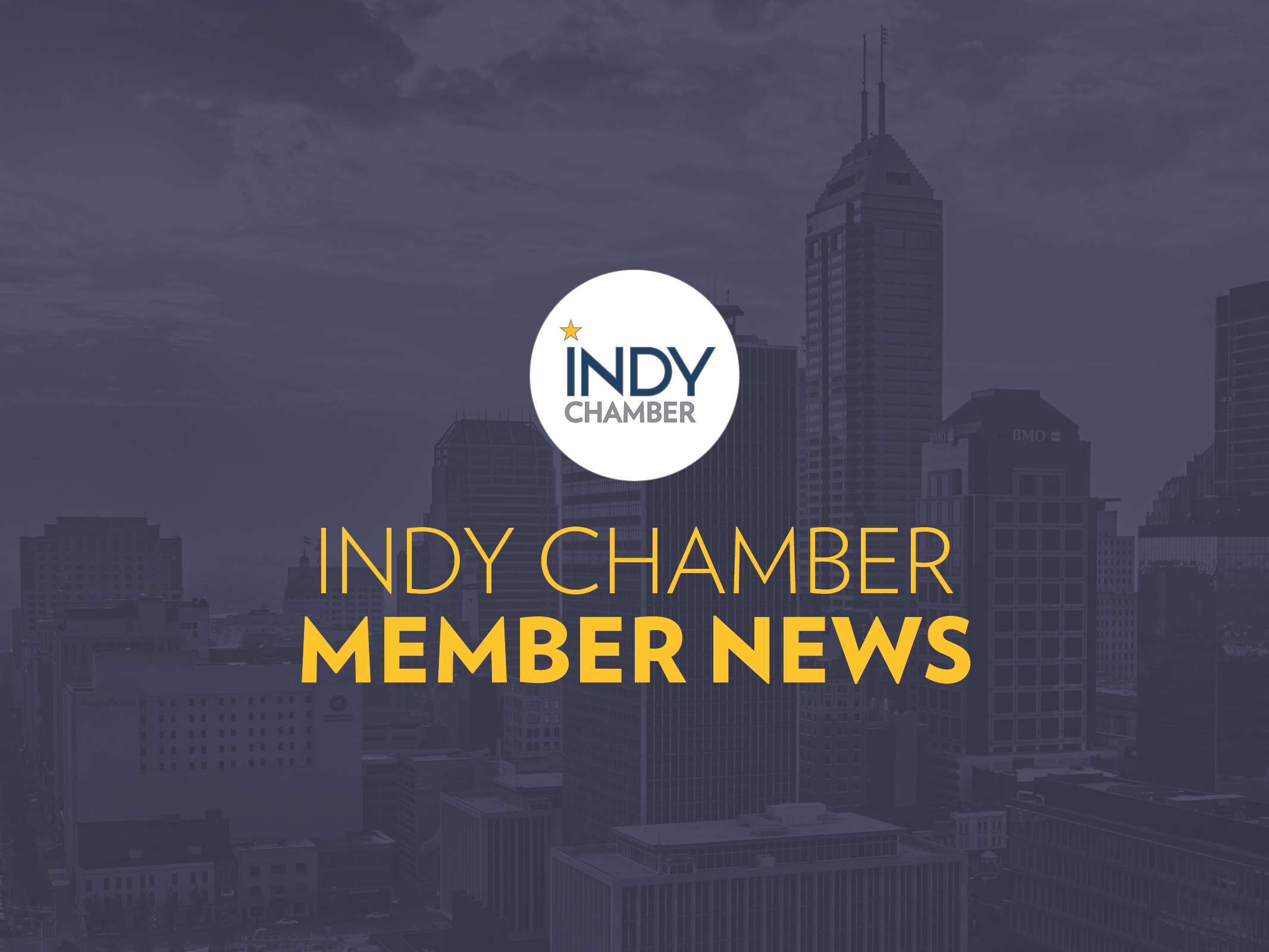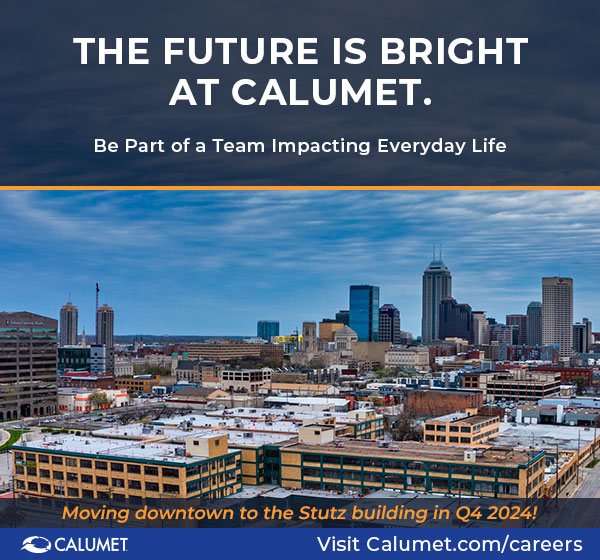Indy Chamber Previews Accelerate Indy Economic Development Strategy; Regional Plan Broadens Focus on Talent, Innovation Homegrown Business

Indy Chamber News Archives
Briefing at 16 Tech includes Brookings Institution expert on Indy’s need to “rethink economic development” to stay competitive with metro heavyweights
(INDIANAPOLIS, Ind. - September 19, 2016) Today, the Indy Chamber previewed and provided an early progress report on Accelerate Indy: An Initiative to Fuel the Metro Economy. The new economic development strategy includes aggressive plans for talent, advanced industry jobs and investment, and ‘homegrown’ expansion; initial projects include a Metro Indianapolis Global Trade and Investment Strategy, expanded mass transit, regional entrepreneur support, and anchor institution initiatives.
Accelerate Indy aims to help the region compete with major metropolitan peers. When it comes to recent economic growth, big metros are putting up big numbers: According to The Brookings Institution, the nation’s 100 largest regions have created roughly 90% of all post-recession jobs and new businesses.
At the Eskenazi Fine Arts Center in the 16 Tech innovation district, corporate, civic and elected leaders heard The Brookings Institution’s Vice President and Director of the Metropolitan Policy Program Amy Liu describe this metropolitan revolution, which Indy Chamber officials connected to the Accelerate Indy agenda: Investing in quality of life, building an appealing regional brand that attractstalented workers and high-value employers, and helping existing companies and start ups expand locally and do business globally.
“Accelerate Indy recognizes that today’s most successful regions attract a critical mass of smart, skilled people and employers that thrive on innovation and human capital,” said Indy Chamber President & CEO Michael Huber. “So we have to add to our traditional definition of economic development, and make talent a top priority to fuel the regional economy.”
Brookings recently ranked Indy 21st among the top 100 metros adding advanced industry jobs; these manufacturing, life sciences, technology and energy sectors employ large numbers of scientists, engineers and tech workers. But Liu noted that a business-as-usual approach would limit future growth.
“It’s no coincidence that major metros are home to 70% of the nation’s advanced industry jobs, 74% of its college graduates and 75% of total GDP – there’s a strong correlation among cutting-edge industries, educated workers and economic growth and productivity,” Liu explained. “Indy’s advanced economy is solid, but the region needs a full-court press to attract and retain talent and build an innovation-friendly business climate.”
Huber added that Accelerate Indy also focuses on two of the region’s most promising sources of employment and investment – existing businesses, which account for 80% of metro job creation, and global trade, where thousands of local companies aren’t taking advantage of export opportunities.
“We can do a much better job recruiting high-value employers, especially in global advanced industries,” Huber said. “But there’s more to economic development than business attraction. We have tremendous opportunities to ramp up entrepreneurship, help small companies grow, and support mid-market exporters.”
Local presenters offered more details on several Accelerate Indy projects already underway:
- Mass transit as a quality of life investment, building a more convenient, connected city to attract people, including young workers who value walkability and the convenience of transit, and employers who are looking for cities where this infrastructure already exists;
- The Metro Indianapolis Global Trade and Investment Strategy, developed under the Global Cities Initiative, a joint project of Brookings and JPMorgan Chase, concentrating on the region’s life science assets to encourage mid-sized companies to become exporters and attract foreign investment as a center of industry innovation, manufacturing and logistics;
- Expanding entrepreneurial and small business resources across the region – business coaching and educational programs, microlending and other growth capital initiatives;
- Capitalizing on Indy’s anchor institutions (defined as major employers, higher education, and healthcare campuses) to create live-hire-buy development in surrounding neighborhoods and encourage purchasing partnerships with local suppliers to keep capital and jobs in the region.
Over the last two years, the Indy Chamber sought input from thousands of employers and civic leaders, engaged policymakers, studied peer regions and worked with national experts to develop a regional economic development strategy. Accelerate Indy was informed by this analysis, identifying the most urgent priorities with a realistic plan for implementation and oversight by the Indy Chamber.
“The process gave us a remarkably consistent blueprint for regional growth,” said David Lewis of Eli Lilly & Company, who chaired the Regional Strategy Committee. “For example, it confirmed mass transit as a critical issue for attracting talent and staying competitive with other regions, but also for our more immediate need to connect local residents with jobs.
“It’s exciting to see this work evolve into Accelerate Indy and recognize that we’re already making progress – moving into the home stretch for the transit referendum, finishing the global strategy, and building on an entrepreneur services structure that’s already helping thousands of local businesses.”
“Accelerate Indy is about moving faster and smarter than our competition, and we’re not wasting any time,” Huber finished.
The Metro Indianapolis Global Trade and Investment strategy can be found at IndyChamber.com/GlobalIndy.
###
Media Contacts:
Joe Pellman, Indy Chamber, 317.464.2251, [email protected]
Chris Watts, CVR Public Relations, 317.514.3184, [email protected]
About The Indy Chamber:
The Indy Chamber is the voice of progress and improvement for the Indianapolis region's business community. With membership of nearly 2,000 businesses in the Indianapolis region, the Indy Chamber is leading the effort to strengthen the business climate, improve the state of education, revitalize neighborhoods and enhance the region's workforce. For more information, visit IndyChamber.com.
About the Global Cities Initiative:
The Global Cities Initiative is a joint project of the Brookings Institution and JPMorgan Chase designed to help metropolitan leaders advance and grow their regional economies by strengthening international connections and competitiveness on key economic indicators such as advanced manufacturing, exports, foreign direct investment, and traded sectors. GCI activities include producing data and research to guide decisions, fostering practice and policy innovations, and facilitating a peer-learning network. The Global Cities Initiative is chaired by Richard M. Daley, former mayor of Chicago and senior advisor to JPMorgan Chase. It is directed by Amy Liu, vice president and director of the Brookings Metropolitan Policy Program. For more information, see http://www.brookings.edu/projects/global-cities.aspx or www.jpmorganchase.com/globalcities.
Member Stories

11 Local Projects Awarded Grants to Support Projects in Near West, Near Northwest and Nearby Neighborhoods

Join Our Newsletter
Quick Connect Links


